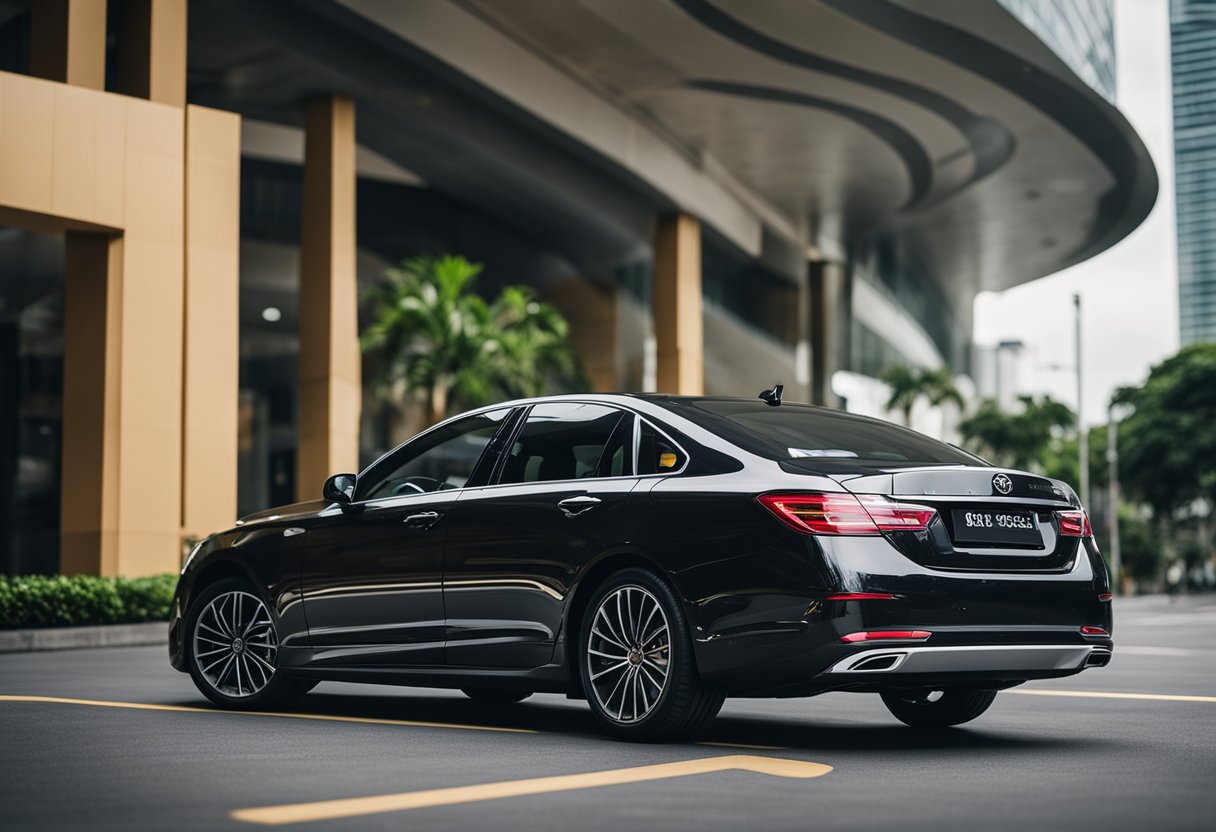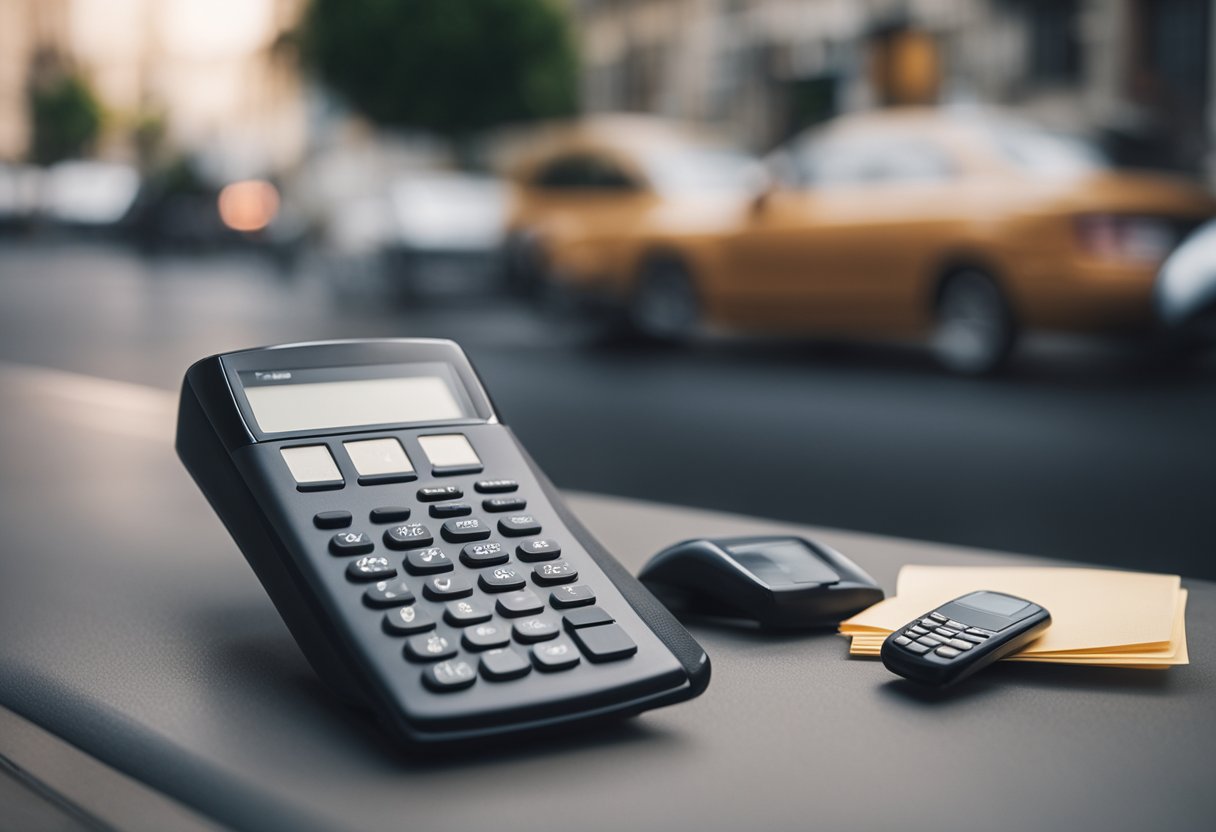When purchasing a car in Singapore, it is important to consider the depreciation value of the vehicle. Depreciation refers to the decrease in value of an asset over time, and it is a crucial factor to consider when buying or selling a car. Understanding how to calculate the depreciation of a car in Singapore is essential for making informed decisions about buying and selling vehicles.

To calculate the depreciation of a car in Singapore, you need to take into account several factors, including the purchase price of the car, the age of the car, and the COE (Certificate of Entitlement) value. The COE is a permit that allows the owner to use the car on Singaporean roads for a period of 10 years. The value of the COE is determined by the government and fluctuates based on supply and demand. The COE value is a significant factor in the depreciation of a car in Singapore, and it is important to understand how it affects the value of a vehicle.
Understanding Car Depreciation
As a car owner in Singapore, it is important to understand how car depreciation works. Car depreciation is the decrease in value of your car over time due to wear and tear, age, and other factors. It is essential to understand car depreciation because it can have a significant impact on the resale value of your car.
In Singapore, cars are subject to a high rate of depreciation due to strict regulations and high taxes. The rate of depreciation for a car in Singapore can be as high as 50% in the first three years of ownership. This means that a car that costs $100,000 when new could be worth only $50,000 after three years.
There are several factors that affect the rate of car depreciation, including the make and model of the car, the age of the car, the mileage, and the condition of the car. Luxury cars tend to depreciate faster than economy cars, while cars with low mileage and good condition tend to hold their value better than cars with high mileage and poor condition.
It is important to keep track of the depreciation of your car so that you can estimate its resale value accurately. You can use a car depreciation calculator to estimate the depreciation of your car based on its make and model, age, mileage, and condition. This can help you to determine when the best time is to sell your car and get the highest resale value.
In conclusion, understanding car depreciation is crucial for car owners in Singapore. By knowing how car depreciation works and how it affects the resale value of your car, you can make informed decisions about buying and selling cars.
Factors Affecting Car Depreciation

When it comes to calculating the depreciation of a car in Singapore, there are several factors that can affect its value. Here are the most important ones:
Age of the Car
The age of the car is one of the most significant factors that affect its depreciation. Typically, cars lose the most value in the first few years of ownership. In Singapore, cars are subject to a Certificate of Entitlement (COE) system, which means that the older a car is, the less time it has left on its COE. This can significantly impact its value, as buyers may be hesitant to purchase a car with a shorter COE.
Make and Model
The make and model of a car can also have a significant impact on its depreciation. Generally, luxury cars tend to depreciate at a faster rate than economy cars. This is because luxury cars often have higher maintenance costs and are more expensive to repair. Additionally, some makes and models may be more popular than others, which can impact their resale value.
Mileage
The mileage of a car is another important factor that affects its depreciation. Generally, the more miles a car has, the less it is worth. This is because higher mileage cars are more likely to have mechanical issues and may require more maintenance. Additionally, cars with high mileage may be less desirable to buyers.
Condition and Maintenance
The condition of a car is a significant factor that affects its depreciation. A well-maintained car that is in good condition will typically hold its value better than a car that has been poorly maintained. Regular maintenance, such as oil changes and tire rotations, can help keep a car in good condition and maintain its value.
Market Demand
Finally, market demand is another factor that can affect the depreciation of a car. If a particular make or model is in high demand, it may hold its value better than a less popular car. Additionally, factors such as fuel efficiency and safety ratings can impact a car’s resale value, as buyers may be willing to pay more for a car that is more fuel-efficient or has a higher safety rating.
Depreciation Calculation Methods
When calculating the depreciation of a car in Singapore, there are two main methods that are commonly used: the straight line method and the reducing balance method.
Straight Line Method
The straight line method is a simple and straightforward way to calculate the depreciation of a car. This method involves dividing the cost of the car by its useful life. The result is the amount of depreciation that occurs each year.
For example, if a car costs $40,000 and has a useful life of 5 years, the annual depreciation would be $8,000 ($40,000 ÷ 5). This means that the car’s value would decrease by $8,000 each year.
Reducing Balance Method
The reducing balance method is a more complex way to calculate the depreciation of a car. This method involves calculating the depreciation based on a percentage of the car’s remaining value each year.
For example, if a car costs $40,000 and has a depreciation rate of 20%, the first year’s depreciation would be $8,000 ($40,000 x 20%). This would leave the car with a remaining value of $32,000. The second year’s depreciation would be based on this remaining value, which would be $6,400 ($32,000 x 20%). This would leave the car with a remaining value of $25,600, and so on.
The reducing balance method is often used for cars that have a higher rate of depreciation in the earlier years of their life. This is because the percentage of the remaining value that is used to calculate the depreciation decreases each year, which means that the depreciation amount decreases as well.
It is important to choose the right depreciation method for your car, as this can have a significant impact on the amount of tax that you will need to pay.
How to Calculate Car Depreciation in Singapore
As a car owner in Singapore, understanding how to calculate your car’s depreciation is crucial. It helps you estimate the value of your car over time and make informed decisions about selling or trading it in. Here is a step-by-step guide to calculating car depreciation in Singapore:
Step-By-Step Guide
- Determine the Total Cost of the Vehicle: The total cost of the vehicle includes the purchase price, COE, ARF, and any other additional costs.
- Determine the Sale Value of the Vehicle: The sale value of the vehicle is the amount you could sell the car for at the end of its lifespan. In Singapore, this is usually determined by the PARF rebate or the COE rebate.
- Determine the Number of Years in Service: The number of years in service is the duration of your car’s COE.
- Calculate the Annual Depreciation: The annual depreciation is calculated by subtracting the sale value of the vehicle from the total cost of the vehicle and then dividing the result by the number of years in service. The formula is as follows: Annual Depreciation = (Total Cost of Vehicle – Sale Value of Vehicle) / Number of Years in Service For example, if the total cost of your car is $50,000 and the sale value is $10,000 after 10 years, the annual depreciation would be ($50,000 – $10,000) / 10 = $4,000 per year.
- Understand the Impact of COE Renewal: If you renew your COE, the total cost of your car will increase, which will affect the annual depreciation. Therefore, it is essential to factor in the cost of renewing your COE when calculating annual depreciation.
Overall, calculating car depreciation in Singapore is relatively straightforward. By following the steps outlined above, you can estimate the value of your car over time and make informed decisions about when to sell or trade it in.
Tips to Minimize Car Depreciation

As a car owner in Singapore, it’s important to minimize your car’s depreciation to ensure you get the best resale value when it’s time to sell. Here are some tips that I’ve found helpful:
Regular Maintenance
Regular maintenance is crucial in keeping your car in good condition and minimizing depreciation. Make sure to follow the manufacturer’s recommended maintenance schedule and keep all service records. This shows potential buyers that you’ve taken good care of the car and can help increase its resale value.
Limit Mileage
The more mileage your car has, the more it will depreciate in value. Try to limit your car’s mileage by taking public transportation or carpooling when possible. If you must drive, plan your routes carefully to minimize unnecessary mileage. This will help keep your car’s resale value high.
Keep All Service Records
Keeping all service records is important not only for regular maintenance but also for any repairs or upgrades you make to your car. This shows potential buyers that the car has been well-maintained and can help increase its resale value. Keep all receipts and invoices for any repairs or upgrades you make to the car.
By following these tips, you can minimize your car’s depreciation and ensure you get the best resale value when it’s time to sell.